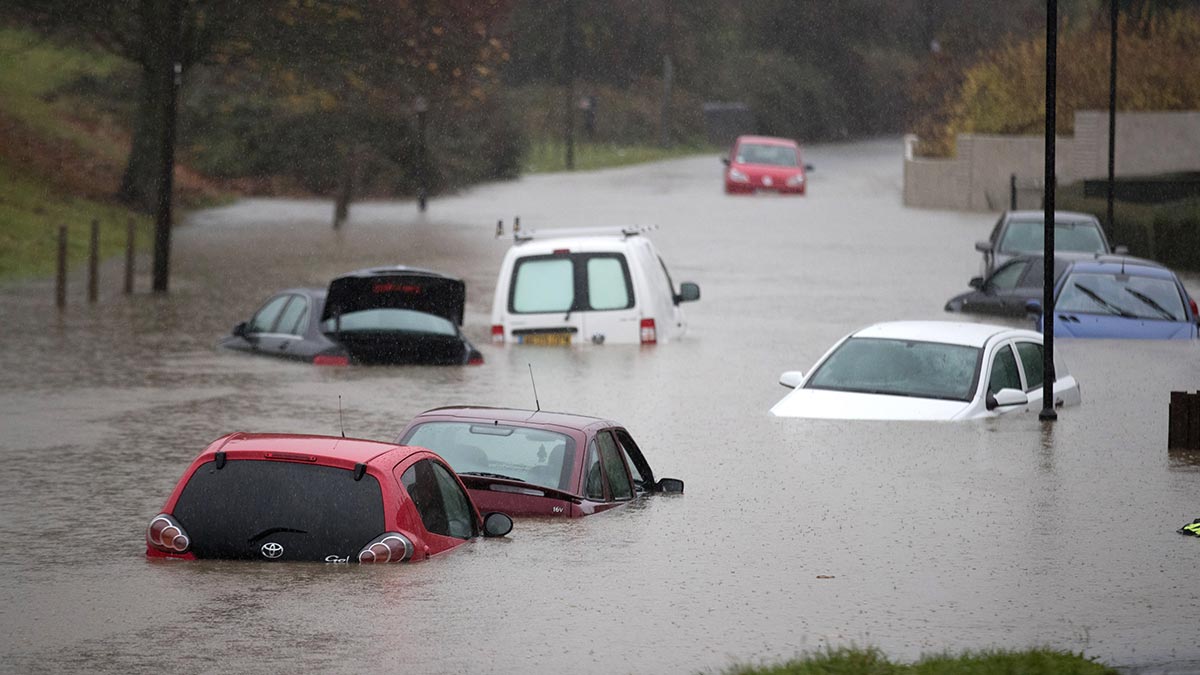Corporate Australia still underwater on ESG

Cars submerged in a flood in Bristol, UK
Australian companies are falling behind international peers in reporting on environmental sustainability, according to a new report.
While almost two thirds of global companies have a policy flagging an intention to reduce emissions, only one third have a method for getting there, information service Refinitiv found in its ‘Financing a Sustainable Australia’ report.
In Australia, the situation is worse.
“The number of companies with emissions policies in Australia have jumped from just over a third in 2014 to almost half in 2018,” said Refinitiv global director of ESG (environment, social and corporate governance) Elena Philipova.
“However, the number of companies with specific reduction target emissions has remained relatively stable with only a 7 per cent increase [to 19 per cent of all companies in 2018].”
ESG is no longer just a ‘nice to have’. Refinitiv data shows global ESG funds outperformed during the March market rout and ensuing rally.
In Australia, financial information provider Morningstar has already shown that funds with low carbon commitments have better-than-average protection from falling markets.
While these funds have similar characteristics to their non-ESG peers, they tend to have higher quality portfolios.
While Rainmaker Information found that ESG funds withstood the onslaught of COVID-19 better than non-ESG funds: Australian Ethical Investment (ASX:AEF) is one of a few products to deliver a positive return in 12 months.
“The current COVID-19 pandemic has highlighted that ESG is not just a bull market phenomenon,” Philipova said.
“We are now seeing that companies with better ESG risk profiles have outperformed the broad market since its February peak.
“Companies that focus on sustainability will be more resilient in downturns and better positioned to capture opportunities when economic activity resumes.”
The heat is on
In Australia, the most improved award goes to the financial sector, comprising banking and investment services and insurance, and telecommunications.
Refinitiv found more companies are using resource reduction strategies but still lag in waste and recycling.
After an extended drought followed by bushfires earlier this year, 36 per cent of large Australian companies have a water policy. Only 11 per cent have specific targets to meet it, however.
Australian companies have been put on notice by regulators that inaction, particularly on environmental and climate issues, is becoming unacceptable.
In February, the Australian Prudential Regulation Authority (APRA) said it planned to make a prudential practice guide focused on climate risk and a climate change vulnerability assessment.
APRA executive board member Geoff Summerhayes said regulators and supervisors from around the world were developing responses to the climate data deficit, with financial risk set to be a key focus for the regulator in the coming years.
The Australian Council of Superannuation Investors, which has 39 members and $2.2 trillion under management, has flagged an expanded climate change agenda for 2020.
While ESG funds make up a tiny fraction of the investment universe now and company boards are still getting their heads around what they need to do, expectations are that entities with an ESG alignment will perform better in the years ahead.
The Bank of America Corporation recently estimated that ESG funds will rival the S&P 500 within the next 20 years, anticipating growth to $20 trillion of assets
Last year, Google, Facebook and Amazon were found to be the world’s largest buyers of renewable energy in order to help power their data centers. Others such as investment behemoth Blackrock say they will dump holdings that don’t align with climate change goals.
Related Topics
UNLOCK INSIGHTS
Discover the untold stories of emerging ASX stocks.
Daily news and expert analysis, it's free to subscribe.
By proceeding, you confirm you understand that we handle personal information in accordance with our Privacy Policy.








